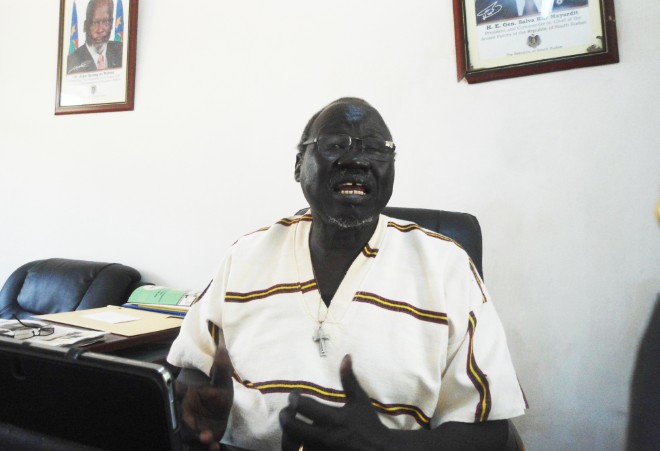JUBA, South Sudan — The leader of the minority party in the National Legislative Assembly, Onyoti Adigo, has suggested convening a national consensus dialogue to resolve critical issues rather than conducting partial elections in June.
“The Government should call all political parties, civil society organizations, faith-based groups and people to decide the way forward,” Onyoti told the New Nation.
According to the minority leader, if the government is accepted by all, the mandate should be to bring peace, reconcile and unite people, build trust, and afterwards elections could be organized — “After census and geographical constituencies is known,” said Onyoti.
“Supposing the government goes for elections in June and in July there is peace, you might have wasted time by establishing another transitional period again. If you think about elections, it means the government is not for peace.”
The warring parties in the IGAD-brokered talks have agreed on the formation of a transitional government as a final deal is negotiated to end the war.
They have agreed on a 27 cabinet ministers, but the most sticky issue is who heads the government, as the rebels propose their leader, Riek Machar, and Juba insists on South Sudanese President Salva Kiir as the leader of the transitional government of national unity.
“They brought the example of Sudan, Syria and Afghanistan, which ran elections. Are those countries peaceful now? They are killing their own citizens,” he said.
The minority leader added that those dying in both sides of the conflict are South Sudanese, so the example of Syria and Iraq holding elections during turmoil are irrelevant to the country.
He further said partial elections are not democratically acceptable, and in the case of South Sudan there maybe four states: Jonglei, Upper Nile, Unity and Lakes.
“How can the government talk of elections when thousands are in IDP camps and those in towns experience hunger even in Juba? Instead of thinking of the people — for them to eat — you talk of an election. Money should have been for the suffering people. The displaced are in dire need of food, sanitation, water and medical care, and you want to take billions for elections.”
According to the leader of minority, the money allocated for elections is not within the law as it is not reflected in the budget and appropriation bill endorsed by Parliament when the national budget was passed last year.
“When we approved the budget, the amount was not there. It should have been approved by Parliament. They want to use it, as previous billions were lost. It is a violation of the law,” said Onyoti.
By Moi Julius
